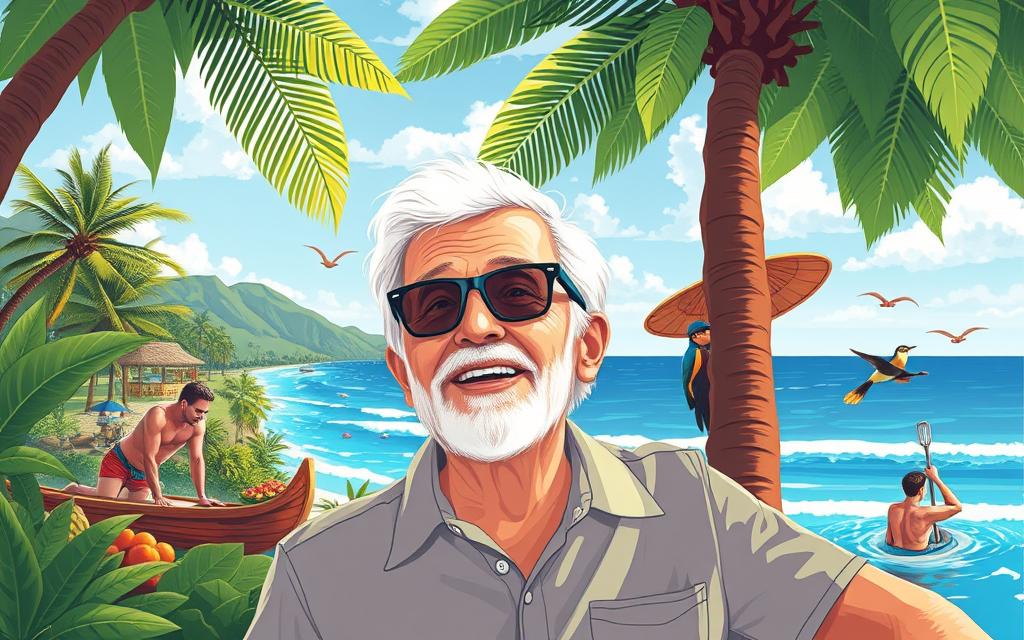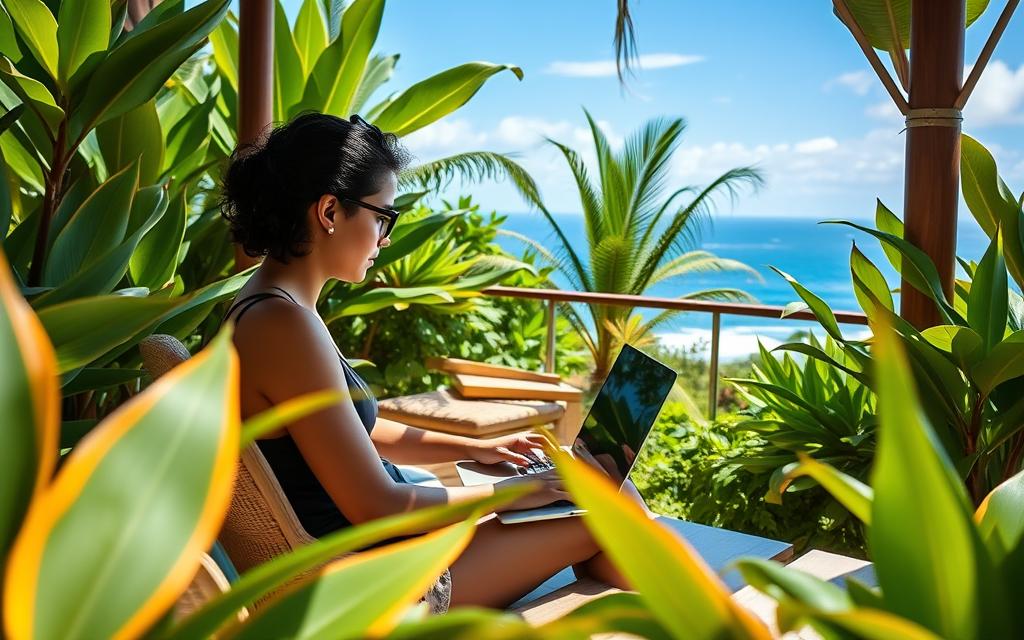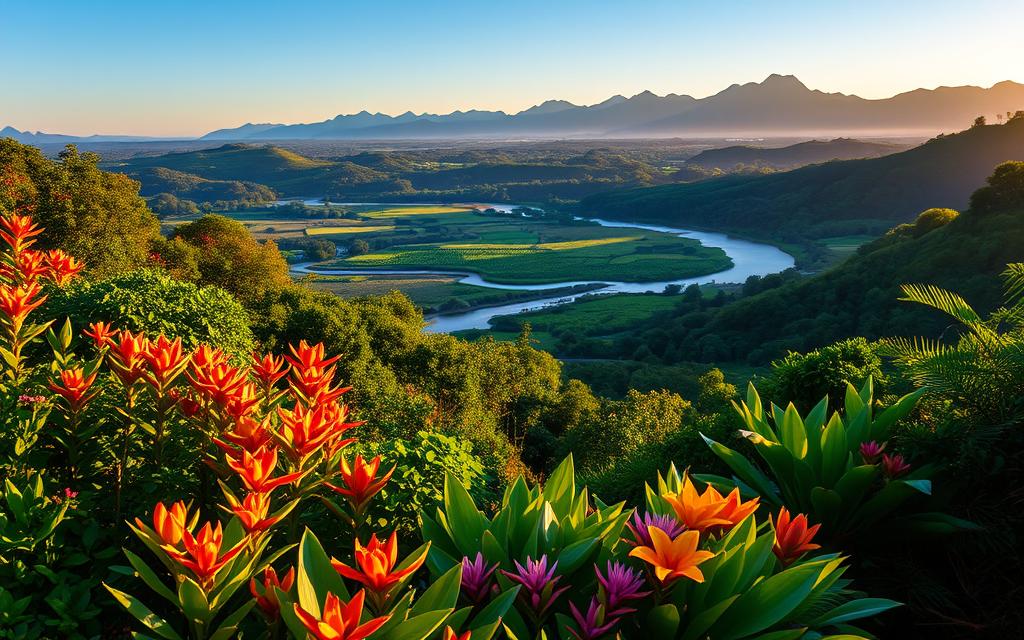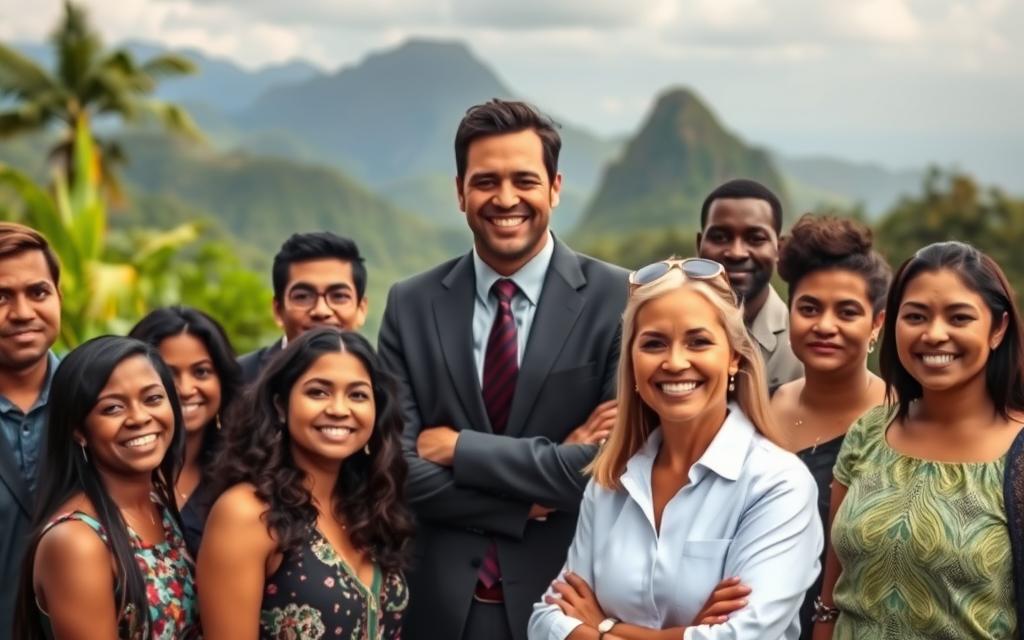As a hub for international workers and service providers, Costa Rica has introduced Law No…

What is the Best Residency Program for Costa Rica Expats? Expert Advice
Costa Rica has become a haven for expats, drawn by its lush landscapes, stable democracy, and welcoming culture. As immigration experts with over 20 years of experience, we’ve guided thousands of individuals through the process of making this beautiful country their new home.
With multiple residency programs available, choosing the right one can be daunting. Our team at Costa Rica Immigration Experts (CRIE) is well-versed in the intricacies of Costa Rican immigration law and is committed to helping you navigate the complexities of obtaining a visa and achieving residency in this stunning country.
We understand that each individual’s circumstances are unique, and the right residency program depends on your financial situation, lifestyle goals, and long-term plans. Our comprehensive guide will provide you with expert insights to make an informed decision.
The Allure of Costa Rica for Expats
Expats are drawn to Costa Rica for its exceptional quality of life, stunning landscapes, and welcoming communities. The country’s unique blend of natural beauty, cultural richness, and modern amenities makes it an attractive destination for those looking to relocate.
The Pura Vida Lifestyle and Natural Beauty
Costa Rica is renowned for its “Pura Vida” lifestyle, which translates to a pure or simple life. This philosophy is reflected in the country’s lush rainforests, exotic wildlife, and beautiful beaches. The natural beauty of Costa Rica provides a serene backdrop for expats to enjoy outdoor activities such as surfing, hiking, and wildlife watching.
Stable Democracy and Welcoming Communities
Costa Rica has maintained a stable democracy since 1949, famously abolishing its military and redirecting those funds toward education and healthcare. This political stability creates a secure environment for foreign residents, with low crime rates compared to neighboring nations. Expat communities have flourished throughout Costa Rica, offering newcomers built-in social networks and support systems during their transition. The healthcare system in Costa Rica is also noteworthy, ranking highly globally with both public and private options providing quality care at a fraction of North American costs.
The country’s welcoming communities and high-quality healthcare system make it an ideal destination for expats. Many areas, particularly in popular expat regions, have developed “English bubbles” where newcomers can comfortably navigate daily life while gradually learning Spanish.
Overview of Costa Rica’s Residency Programs
Costa Rica offers a variety of residency programs tailored to different needs and preferences. The process typically takes six to twelve months, depending on the program chosen. This flexibility makes Costa Rica an attractive destination for expats and individuals looking to relocate.
Temporary vs. Permanent Residency Options
Costa Rica provides both temporary and permanent residency options. Temporary residency is ideal for those who wish to maintain a connection with their home country or travel extensively. On the other hand, permanent residency is suited for individuals who intend to make Costa Rica their long-term home.
The choice between temporary and permanent residency depends on one’s lifestyle and future plans. For instance, temporary residents can maintain their status with minimal physical presence, whereas permanent residents may be required to fulfill more substantial presence requirements during their qualification period.
Minimal Physical Presence Requirements
One of the most attractive features of Costa Rica’s residency programs is the minimal physical presence requirement. Most temporary residents need only visit Costa Rica once per year to maintain their status. This flexibility is particularly beneficial for individuals who split their time between countries or travel frequently.
- The annual visit requirement is often combined with the residency card renewal process, making it convenient for residents.
- For those pursuing permanent residency, more substantial physical presence may be required during the qualification period.
- The Digital Nomad Visa has different requirements, mandating at least 180 days in Costa Rica during the first year for those seeking renewal.
Renewals for residency are straightforward, with costs starting at $15.50 USD for the DIMEX card. This ease of renewal, coupled with the minimal physical presence requirements, makes Costa Rica’s residency programs highly appealing to expats and digital nomads alike.
The Pensionado Program: Perfect for Retirees

For retirees looking to relocate, Costa Rica’s Pensionado Program offers an attractive pathway to residency. This program is specifically designed for individuals who receive a pension from a qualified source, providing them with a straightforward process to obtain residency in Costa Rica.
$1,000 Monthly Pension Requirement
One of the primary requirements for the Pensionado Program is that applicants must demonstrate a minimum monthly pension of $1,000 from a qualified source. This income threshold is a critical factor in determining eligibility.
Document Certification and Application Process
The application process for the Pensionado Program involves several key steps and requires specific documents. Applicants must submit a birth certificate, police records, and income certifications. All documents must be properly authenticated through apostille or legalization at the Costa Rican consulate in the applicant’s home country.
- All documents submitted must be properly authenticated.
- Required documents include birth certificates, marriage certificates (if applicable), police background checks, and proof of pension income.
- Documents not in Spanish must be officially translated by a certified translator.
- The application involves submitting paperwork to the Costa Rican immigration department and attending an in-person appointment.
Processing times generally range from 6-12 months. During this period, applicants can remain in Costa Rica on tourist visas, making regular border runs if necessary.
The Rentista Program: For Non-Retirees with Steady Income

For non-retirees looking to make Costa Rica their home, the Rentista program offers a viable pathway to residency. This program is designed for individuals who have a steady income from a reliable source.
$2,500 Monthly Income or $60,000 Bank Deposit
The Rentista program requires applicants to demonstrate a minimum monthly income of $2,500 or have a $60,000 deposit in a Costa Rican bank. This financial requirement is a crucial aspect of the application process for acquiring a Rentista visa.
Legal Requirements and Timeline
In addition to income verification, applicants must meet specific legal criteria, including providing authenticated documents such as a birth certificate, police records, and proof of income. All documents must be translated into Spanish if they are in another language.
- The Rentista application follows similar documentation requirements as the Pensionado program.
- Applicants must demonstrate that their income source is stable and guaranteed for at least 24 months.
- The timeline for Rentista approval typically ranges from 6-12 months.
- Once approved, Rentista status is initially granted for two years and can be renewed.
- After three years, residents become eligible to apply for permanent residency.
Understanding the requirements and process is crucial for a successful application. We recommend consulting with experts to navigate the complexities of Costa Rica’s residency programs.
The Inversionista (Investor) Program
The Inversionista Program in Costa Rica is an attractive option for those willing to invest in the country’s thriving economy. Costa Rica offers numerous economic opportunities, particularly in sustainable tourism and real estate, making it an appealing destination for smart investors. By investing in Costa Rica, you’re not only securing residency but also contributing to a thriving market.
$150,000 Investment Threshold
To qualify for the Inversionista Program, applicants must meet a minimum investment threshold of $150,000. This investment can be in various forms, providing flexibility for investors to choose options that best suit their financial goals and preferences.
Real Estate and Business Investment Options
Real estate investments are the most common pathway for Inversionista applicants, with options ranging from residential properties to commercial developments. Business investments can include starting a new company, purchasing an existing business, or investing in Costa Rican corporations. Sustainable and eco-tourism projects are particularly well-received, aligning with Costa Rica’s environmental values and growing tourism sector. Additionally, agricultural investments, particularly in coffee, cacao, and tropical fruits, offer both residency qualification and potential return on investment.
Law 9996 provides tax incentives for investors, including exemptions on import duties for household goods and vehicles, enhancing the program’s appeal. These incentives, combined with the country’s stable democracy and growing expat community, make Costa Rica an attractive destination for investment.
Digital Nomad Visa: Modern Solution for Remote Workers
Costa Rica’s Digital Nomad Visa is revolutionizing the way remote workers live and work abroad. This innovative visa program is designed to attract digital nomads from around the world, offering a unique blend of work and leisure in one of the most biodiverse countries on the planet.
$3,000 Individual/$4,000 Family Income Requirements
To qualify for the Digital Nomad Visa, applicants must meet specific income requirements. Individuals need to demonstrate a monthly income of at least $3,000, while families must show a monthly income of $4,000. This requirement ensures that visa holders can support themselves comfortably while living in Costa Rica.
Tax Benefits and Renewal Process
The Digital Nomad Visa offers significant tax benefits, as holders are exempt from Costa Rican income tax on their foreign-earned income. The visa is initially granted for one year and can be renewed for an additional year, provided the holder has resided in Costa Rica for at least 180 days during the first year. Key benefits include:
- Digital Nomad Visa holders enjoy significant tax advantages, as they are exempt from Costa Rican income tax on their foreign-earned income.
- The visa is initially granted for one year and can be renewed for an additional year if the holder has spent at least 180 days in Costa Rica during the first year.
- Unlike other residency categories, Digital Nomad Visa holders are not required to contribute to the Caja healthcare system, though they must maintain private health insurance.
- The application process is streamlined and typically much faster than other residency options, often completed within 2-3 weeks.
- After the maximum two years on the Digital Nomad Visa, many holders transition to other residency categories if they wish to stay in Costa Rica long-term.
By offering a straightforward application process and attractive benefits, Costa Rica’s Digital Nomad Visa is an appealing choice for remote workers looking to experience the country’s renowned “Pura Vida” lifestyle.
What is the Best Residency Program for Costa Rica Expats?
The diverse range of residency options in Costa Rica can be overwhelming, but making an informed decision is key. As expats, it’s essential to evaluate various factors to choose the most suitable program for your specific situation.
Matching Programs to Your Financial Situation
When considering residency in Costa Rica, your financial situation plays a significant role in determining the most appropriate program. Different programs have varying financial requirements, such as the Pensionado Program’s $1,000 monthly pension or the Rentista Program’s $2,500 monthly income. We recommend assessing your financial standing to identify which program aligns with your economic capabilities.
For instance, if you’re a retiree with a steady pension, the Pensionado Program might be the most suitable. On the other hand, if you have a steady income from a remote job, the Rentista Program could be more appropriate. Understanding these financial requirements is crucial in narrowing down your options.
Lifestyle Considerations and Expert Recommendations
Beyond financial qualifications, lifestyle considerations should significantly influence your residency program choice. Factors such as how much time you plan to spend in Costa Rica, whether you’re seeking permanent relocation, and your healthcare needs are crucial. For example, those seeking permanent relocation should consider programs that provide a clear path to permanent residency after three years.
- Families with children should evaluate educational options in their desired location and how different residency programs affect access to schools.
- Healthcare needs are another crucial factor, as some programs require Caja enrollment while others allow private insurance only.
- Our immigration experts recommend scheduling a personalized consultation to discuss your specific circumstances and receive tailored advice on the best program for your situation.
We know you have many questions, and we would like to schedule a call with our immigration expert to answer them. By considering both financial and lifestyle factors, you can make an informed decision about the best residency program in Costa Rica for your needs.
Navigating the Application Process Successfully
Successfully navigating Costa Rica’s residency application process requires careful planning and attention to detail. As we guide you through this process, understanding the intricacies involved is crucial for a successful outcome.
Document Authentication and Apostille Requirements
One of the critical steps in the residency application process is ensuring that all documents are properly authenticated. This involves obtaining an apostille for certain documents, a process that verifies their authenticity for international use. The apostille is a crucial step that can sometimes be overlooked, leading to unnecessary delays.
- Documents such as birth certificates and police records often require authentication.
- Understanding which documents need an apostille is vital for a smooth application process.
- Working with experts who are familiar with the apostille process can help streamline your application.
Processing Times and Legal Considerations
The processing time for residency applications in Costa Rica can vary significantly, often taking between 6 to 12 months. Several factors influence this timeline, including the completeness of the application, the volume of applications being processed, and the efficiency of the administrative bodies involved.
During this period, it’s essential to maintain legal status in Costa Rica. Applicants can use tourist visas and perform border runs if necessary. Upon submitting their application, applicants receive a receipt (comprobante) that proves their pending status, facilitating border runs and other legal requirements.
Family Considerations for Residency Applications

When applying for residency in Costa Rica, family considerations play a crucial role in the decision-making process. As an expat, it’s essential to understand how different residency programs cater to the needs of your family.
Including Spouses and Dependent Children
Costa Rica’s residency programs allow for the inclusion of spouses and dependent children in the application. This means that families can stay together under a single residency status.
Education and Healthcare Benefits for Families
Families residing in Costa Rica can benefit from the country’s public education system, with resident children having access to free education. Many expat families, however, opt for private or international schools, which can range from $200 to $1,000 per month. Costa Rica’s healthcare system, known as Caja, provides comprehensive coverage for families at a fraction of North American costs. Monthly payments into the Caja system are typically 7-11% of the primary applicant’s declared income.
- Resident children can attend public schools at no cost.
- Families are required to enroll in the Caja healthcare system.
- Private health insurance can be maintained in addition to Caja for more flexibility.
Benefits of Becoming a Costa Rican Resident

Becoming a resident of Costa Rica opens up a plethora of benefits that can transform your life in numerous ways. As we delve into the advantages of residency, it becomes clear that Costa Rica offers a unique blend of lifestyle improvements and financial benefits.
Healthcare and Social Security Advantages
Costa Rica’s healthcare system is renowned for its high quality and accessibility. As residents, individuals can access the country’s public healthcare services, which are known for their efficiency and modern facilities. Moreover, Costa Rican residents are entitled to social security benefits, ensuring a secure and stable future.
The country’s emphasis on healthcare is evident in its high healthcare standards, making it an attractive destination for those seeking quality medical care.
Tax Benefits and Quality of Life Improvements
Costa Rica operates on a territorial tax system, meaning that residents are only taxed on income earned within the country. This creates significant advantages for retirees, investors, and remote workers who maintain income sources outside Costa Rica. Additionally, residents can import household goods duty-free within the first six months of obtaining residency, reducing relocation costs.
The quality of life improvements in Costa Rica are substantial, with access to the country’s natural beauty, a lower cost of living, and the health benefits associated with the “Blue Zone” Nicoya Peninsula. Residents often report higher life satisfaction due to the country’s emphasis on work-life balance, community connection, and environmental well-being.
Common Challenges and How to Overcome Them
Embracing the Pura Vida lifestyle in Costa Rica requires navigating through several common challenges faced by expats. While Costa Rica is known for its welcoming culture and natural beauty, the process of obtaining residency can be complex.
Document Preparation and Legalization Issues
One of the primary challenges expats face is the preparation and legalization of documents required for residency applications. This process can be daunting, especially for those unfamiliar with the specific requirements of Costa Rican immigration laws.
To overcome this, it’s essential to understand the necessary documents and the legalization process. Working with experienced professionals can significantly simplify this task, ensuring that all documents are correctly prepared and legalized.
Navigating Language and Cultural Differences
Language barriers and cultural differences can also complicate the residency process. Many official communications and appointments are conducted in Spanish, which can be challenging for those who don’t speak the language.
- Having Spanish language support during the process is highly beneficial, even though many Costa Ricans in tourist areas speak some English.
- Cultural differences in bureaucratic processes can be frustrating, particularly regarding timeframes and documentation requirements.
- Learning basic Spanish phrases related to the immigration process can help applicants navigate appointments more effectively.
Working with bilingual immigration specialists can bridge both language and cultural gaps, making the application process smoother for expats.
Working with Costa Rica Immigration Experts (CRIE)

With decades of combined experience, CRIE is your trusted partner in navigating Costa Rica’s immigration landscape. Our team of experts has assisted thousands of individuals and families in achieving their residency goals.
20+ Years of Experience and Thousands of Successful Cases
CRIE boasts over 20 years of experience in handling Costa Rica residency applications, with a proven track record of success. Our extensive knowledge and expertise ensure that your application is processed efficiently and effectively, minimizing delays and complications.
Our portfolio includes thousands of successful cases, ranging from retirees to digital nomads and investors. This experience has equipped us with the insights needed to tailor our services to the unique needs of each client.
Personalized Consultation and Contact Information
We understand that every residency application is unique, with its own set of circumstances and requirements. That’s why we offer personalized consultations to assess your specific situation and determine the most appropriate residency pathway for your needs.
To schedule a consultation, you can contact us via phone or WhatsApp at +506 8706-3888 or +506 8373 2085. For clients in the USA or Canada, we offer a toll-free number: +1 305-906-6784. You can also visit our website at www.crie.cr or email info@crie.cr to begin your journey to Costa Rican residency.
Conclusion: Making Your Costa Rican Dream a Reality
Transforming your dream of living in Costa Rica into a reality begins with choosing the right residency program. With various options available, including the Pensionado, Rentista, Inversionista, and Digital Nomad programs, it’s essential to select the one that aligns with your financial situation and lifestyle goals.
With proper planning and expert guidance, the residency process becomes a manageable journey. Working with experienced immigration experts significantly increases your chances of a smooth, successful application process. Once your residency is secured, you can fully embrace the Pura Vida lifestyle and all the benefits that come with calling Costa Rica home.
By choosing the right path and leveraging expert advice, you can turn your Costa Rican dream into a lasting reality. Start your residency process today, and you’ll be on your way to enjoying all that Costa Rica has to offer.


